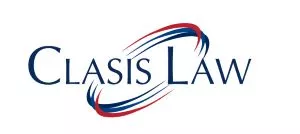- within Insolvency/Bankruptcy/Re-Structuring topic(s)
- with readers working within the Law Firm industries
- within Insolvency/Bankruptcy/Re-Structuring topic(s)
- within Employment and HR, Consumer Protection, Government and Public Sector topic(s)
- with readers working within the Law Firm industries
Introduction
In a significant ruling1, the National Company Law Tribunal (NCLT), New Delhi Bench, dismissed an application seeking the dissolution of M/s Shakti Bhog Snacks Limited (SBSL) under Section 54 of the Insolvency and Bankruptcy Code, 2016 (IBC). The NCLT reasoned that permitting dissolution would frustrate ongoing criminal prosecution under the Prevention of Money Laundering Act, 2002 (PMLA) and impede the jurisdiction of the Special Court designated under the PMLA.
Brief Facts
The insolvency proceedings against M/s Shakti Bhog Snacks Limited were initiated on 3 January 2023, following an application under Section 9 of the Insolvency and Bankruptcy Code, 2016, filed by the operational creditor, M/s Goyal Tea Agencies Private Limited. Upon admission, a moratorium under Section 14 was declared, and Mr. Umesh Gupta was appointed as the Resolution Professional (RP). Despite a public announcement inviting claims, only the State Bank of India (SBI) responded as a financial creditor. Efforts by the RP to obtain cooperation and essential documentation from the suspended directors failed, prompting an application under Section 19(2) of the Code due to their persistent non-compliance.
During his efforts to take control of the Corporate Debtor's affairs, the RP visited its registered office, only to discover that the premises had been sealed by the Enforcement Directorate. No records were accessible, and the only available financial statements dated back to 2015–2016. Additionally, key immovable assets had already been sold by SBI under the SARFAESI Act in 2019. With no assets, operations, or possibility of revival, the CoC, comprising solely of SBI, recommended dissolution. Accordingly, the RP filed an application under Section 54, seeking dissolution without entering into liquidation.
Contentions of the Parties
The RP contended that the Corporate Debtor had no available assets, no ongoing business operations, and no prospect of revival, making liquidation proceedings both futile and economically unviable. He argued that in such circumstances, the Adjudicating Authority is empowered under Section 54 of the IBC to directly dissolve the Corporate Debtor without proceeding to liquidation. It was further submitted that the only property remotely linked to the company was a bank account with a negligible balance of ₹3,701.81, and that the mere pendency of criminal proceedings without any substantial asset involvement should not stall the insolvency resolution process. The RP also noted that in a related case concerning the parent company, the Enforcement Directorate (ED) itself had raised no objection to the release of attached properties.
In opposition, the Enforcement Directorate strongly contended that SBSL was named as an accused in the 5th Supplementary Prosecution Complaint under the PMLA, alleging its involvement in laundering proceeds of crime through bogus transactions routed from its parent company, Shakti Bhog Foods Limited. The ED argued that dissolution would frustrate criminal prosecution and strip the Special Court of its jurisdiction. It further asserted that the PMLA, as a special legislation, overrides the IBC by virtue of its non obstante clause (Section 71 of PMLA), and that the NCLT had no authority to interfere in matters arising under it.
Observations of the Court
The NCLT noted that the application under Section 54 of the Insolvency and Bankruptcy Code was filed on the premise that the Corporate Debtor had no assets, no ongoing business, and no potential for revival. However, it found that in light of the serious and substantiated allegations of money laundering against the Corporate Debtor under the PMLA, allowing dissolution at this stage would effectively terminate the legal existence of the company and frustrate the ongoing criminal prosecution. The NCLT stressed that dissolution cannot be permitted if it would obstruct the lawful jurisdiction of a Special Court under the PMLA.
Highlighting the overriding effect of the PMLA, the NCLT reiterated that it is a comprehensive, special legislation with its own adjudicatory mechanism, and by virtue of Section 71, it prevails over any inconsistent laws. Citing authoritative precedents from the Supreme Court in Embassy Property Developments Pvt. Ltd. v. State of Karnataka and Kiran Shah v. Enforcement Directorate, as well as NCLAT rulings in Sterling Biotech and Manohar Lal Vij, the Tribunal affirmed that it lacked jurisdiction to intervene in matters governed by the PMLA. Consequently, it held that granting dissolution would constitute judicial overreach and hinder the ED's prosecutorial functions, leading to the dismissal of the RP's application.
Conclusion
The NCLT's ruling highlights a vital principle: while the IBC facilitates corporate resolution and revival, it cannot be misapplied to obstruct criminal accountability, particularly under a special law like the PMLA, which is designed to combat economic offences involving proceeds of crime. This judgment reaffirms the primacy of criminal enforcement over insolvency proceedings where money laundering is involved, and delineates the jurisdictional boundaries between the IBC and the PMLA. By refusing to allow dissolution in the face of ongoing prosecution, the NCLT has reinforced the integrity of criminal law and sent a clear message that insolvency cannot serve as a safe harbour from judicial prosecution.
Footnotes
1 M/s Goyal Tea Agencies Private LimitedV/s M/s Shakti Bhog Snacks Ltd. IB-1713-2019
The content of this article is intended to provide a general guide to the subject matter. Specialist advice should be sought about your specific circumstances.



